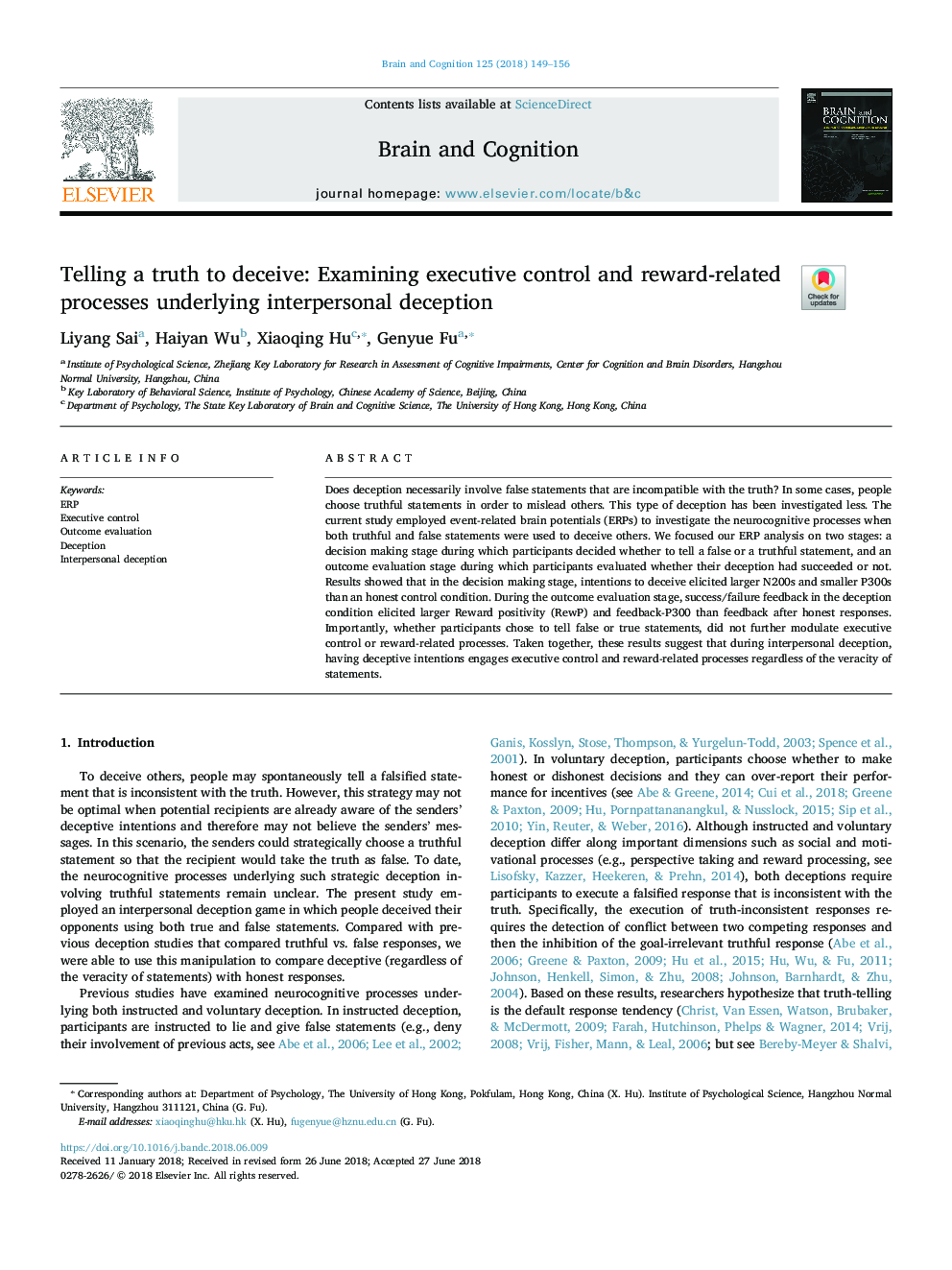| Article ID | Journal | Published Year | Pages | File Type |
|---|---|---|---|---|
| 7282556 | Brain and Cognition | 2018 | 8 Pages |
Abstract
Does deception necessarily involve false statements that are incompatible with the truth? In some cases, people choose truthful statements in order to mislead others. This type of deception has been investigated less. The current study employed event-related brain potentials (ERPs) to investigate the neurocognitive processes when both truthful and false statements were used to deceive others. We focused our ERP analysis on two stages: a decision making stage during which participants decided whether to tell a false or a truthful statement, and an outcome evaluation stage during which participants evaluated whether their deception had succeeded or not. Results showed that in the decision making stage, intentions to deceive elicited larger N200s and smaller P300s than an honest control condition. During the outcome evaluation stage, success/failure feedback in the deception condition elicited larger Reward positivity (RewP) and feedback-P300 than feedback after honest responses. Importantly, whether participants chose to tell false or true statements, did not further modulate executive control or reward-related processes. Taken together, these results suggest that during interpersonal deception, having deceptive intentions engages executive control and reward-related processes regardless of the veracity of statements.
Related Topics
Life Sciences
Neuroscience
Cognitive Neuroscience
Authors
Liyang Sai, Haiyan Wu, Xiaoqing Hu, Genyue Fu,
